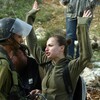
On 29 November 1947 the young United Nations proposed to divide Palestine against the will of the majority of its population (UN Resolution 181). A proposal of some Arab states to request an advisory opinion from the International Court of Justice (ICJ) regarding the legality of the UN partition plan was voted down at the UN General Assembly. The Partition Plan was passed, but never implemented, because powerful states at the time lacked the political will for enforcement. The failed UN partition initiative triggered armed conflict and war in Palestine which resulted in the Nakba (Catastrophe) of 1948, i.e., the forced displacement and dispossession of 80% of the Arab-Palestinian population and the establishment of the state of Israel on 78% of the land. Read more about International Day of Solidarity: Confronting 40 years of occupation, 60 years of Nakba
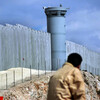
Today, PLO Head of Mission to the United Nations Riyadh Mansour announced that the UN Register of Damage will be re-raised with the General Assembly on 5 December 2006 (BBC Radio-Arabic). Palestinians have many good reasons for doing so; not only is the proposed mechanism for registration seriously flawed, but Palestinians will also be left again without an effective forum for raising claims for restitution and compensation. On 9 July 2004, the International Court of Justice (ICJ) ruled that Israel should dismantle the illegal Wall under construction in occupied Palestinian territory, return confiscated Palestinian properties and provide compensation for damages. Read more about What's the problem with the UN Register of Damage caused by Israel's wall?
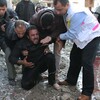
The Israeli Occupying Forces (IOF) have committed an appalling act of mass murder in the town of Beit Hanoun today, one day after they redeployed around it. At dawn, the IOF fired eleven artillery shells on six homes in the town killing 18 civilians; seven of whom are children and six of whom are women. 53 others were wounded; of whom 25 are children and 12 are women. With this, the number of Palestinians who have been killed since the commencement of the IOF operation in Beit hanoun on 1 November 2006 has reached 77. Palestinian human rights organizations strongly condemn this outrageous crime and stress that it is but another example of the continued excessive use of force and the targeting of civilians and civilian objects that is carried out by IOF. Read more about Palestinian human rights groups denounce Beit Hanoun massacre
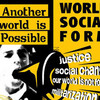
Awareness of the Palestinian Nakba of 1948 and the need to restore the rights of millions of Palestinian refugees, and a principled and rights-based global campaign of boycott, divestment and sanctions against Israel until it complies with international law, have come to represent the global social movements’ answer to the failure of international diplomacy in the Middle East. At the 6th World Social Forum (WSF) convened in January in Caracas, Venezuela, the Social Movements Assembly adopted the Palestinian Civil Society Call for Boycott, Divestment and Sanctions (BDS). The Caracas meeting, one of three World Social Forums taking place in 2006 and bringing together civil society organizations and movements from all across the globe, was attended by well over 100,000 participants. Read more about 2006 World Social Forum, European Social Forum, and beyond: New energy for the quest for justice and freedom in Palestine
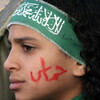
Hamas is now challenged with finding ways to respond to the legacy and the multi-facetted public expectations of its victory and new leadership role. The Palestinian vote has correctly been described as a political earthquake or tusnami that poses deep challenges to the Palestinian body politique, including the secular forces of the Palestinian left. The ball, however, is in the court of the international community - diplomats, governments, and civil society - who will have to show whether they are able and willing to hear and engage based on the message of Palestinian voters in the occupied Palestinian Territory. The 25 January elections to the Palestinian Legislative Council were conducted democratically and peacefully with a voter turnout of almost 78%. Read more about Hamas election victory: A call for good governance and respect of Palestinian rights
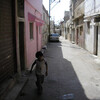
Symbolic elections to the Palestinian National Council (PNC), the PLO’s exile parliament, will be held by Palestinian communities in Paris and Brussels on 25 January parallel to the Palestinian Authority’s second round of elections to the Palestinian Legislative Council (PLC) in the Israeli occupied West Bank and Gaza Strip (OPT). The symbolic elections aim to raise public awareness of the exclusion of over half of the Palestinian people from the internationally-sponsored process of Palestinian political decision making applied under the terms of the Madrid-Oslo agreements between Israel and the PLO. Read more about Palestinian refugees will hold mock PLO elections in Brussels and Paris
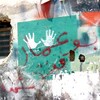
The right of refugees and displaced persons to return to their homes, lands and properties is a universal human right. The 2005 United Nations Principles of Housing and Property Restitution for Refugees and Displaced Persons reaffirm this right. The willingness of states to promote and facilitate the return of refugees and displaced persons is a key indicator of their respect for the rule of law. When Palestinian refugees and internally displaced talk about the right of return they are not asking for a special privilege. The Palestinian demand for the right of return is a demand for equal rights and application of the rule of law. Yet today, there is no law in Israel which constitutionally protects the right of equality for all. Read more about Human Rights Day: Rule of law includes the right of return
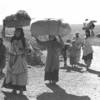
On 15 May, Palestinians commemorate their forced displacement and dispossession resulting from the establishment of the state of Israel. Commemorations of this year’s 57th anniversary of the Palestinian Nakba (catastrophe) aim to draw attention to the need to halt Israel’s ongoing expropriation of Palestinian land and the necessity to recognize and implement Palestinian refugees’ right to return to their homes and properties in accordance with international law and UN General Assembly Resolution 194. Until mid-May, numerous events will be organized by local organizations in West Bank and Gaza Strip to be followed by a national memorial ceremony in Ramallah on 15 May. Read more about 57th Anniversary of the Palestinian Nakba
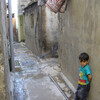
The Palestinian refugee question must be resolved by the parties based on the rule of law. Arab states meeting in Algiers this week reaffirmed that durable solutions for Palestinian refugees must be consistent with UN General Assembly Resolution 194 and international law. The final communique of the Arab League meeting is consistent with international law and practice, which recognize the right of refugees and displaced persons to voluntarily return, repossess their properties and receive compensation for losses. The international agenda of reform includes the promotion of the rule of law. States should therefore apply international law in the search for durable solutions for Palestinian refugees. Read more about Arab League says rule of law is important in finding solutions for Palestinian refugees
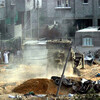
Governments usually guarantee protection for their citizens: basic human rights and physical security but Palestinians have no state or international body to provide for their protection. A group of non-governmental organizations, in a statement to the UNHCR Executive Committee meeting in Geneva 4-8 October, drew attention to the “continuing plight of millions of forcibly displaced Palestinians. Their situation is unique amongst forcibly displaced persons, as millions of them fall into a protection gap.” Read more about NGOs urge governments, UN to tackle lack of protection for Palestinian refugees









